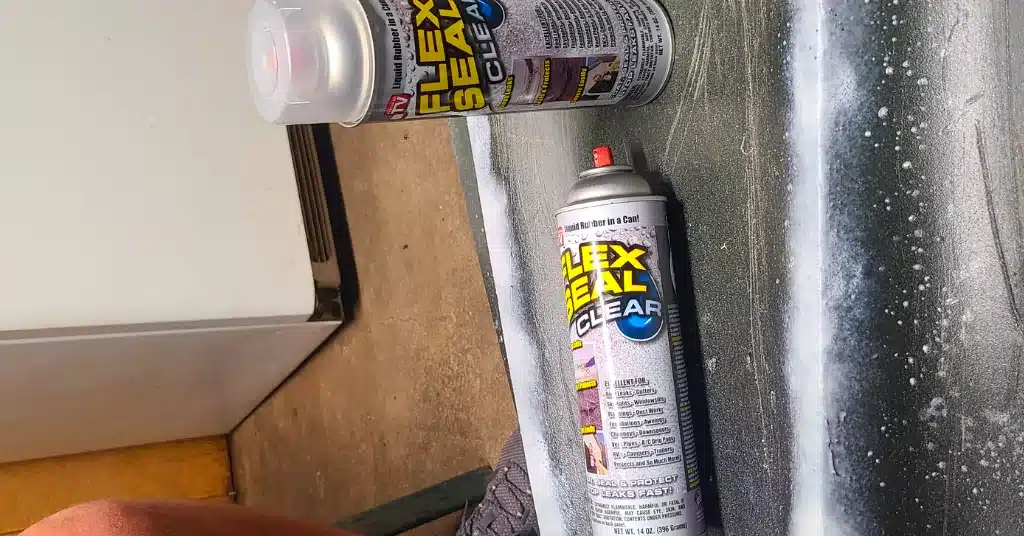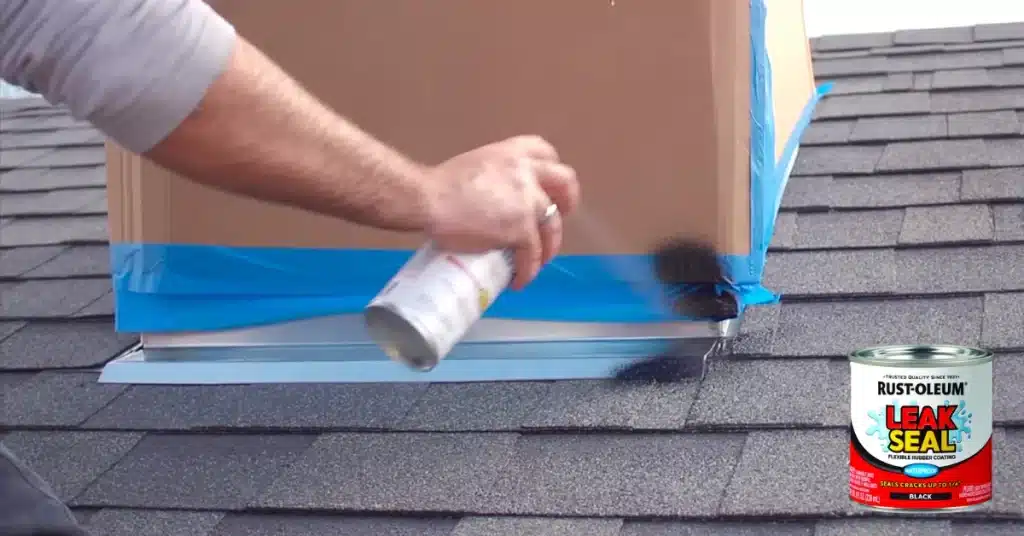In terms of sealing leaks, there are many products available on the market that claim to be the best. A few popular options include Flex Seal and Rust-Oleum LeakSeal. However, which one is better?
The Rust-Oleum LeakSeal is a quick-drying, spray-on solution that protects against water. Alternatively, Flex Seal can be used on a wider range of surfaces, including inflatable objects, because it is more versatile.
In this article, I will compare Flex Seal vs. Rust-Oleum LeakSeal by exploring each product’s features, benefits, and drawbacks.
Read More: Flex Seal Tape Vs. Gorilla Tape
Flex Seal Vs. Rust-Oleum LeakSeal

Overview of Flex Seal
The Flex Seal liquid rubber coating is applied to a variety of surfaces to create a waterproof seal. It is available in both spray cans and liquid forms and can be used on a variety of surfaces, such as roofs, gutters, pipes, and even inflatable items such as boats and pool toys. According to Flex Seal, leaks can be sealed instantly, and it is resistant to water, heat, and cold.
Pros of Flex Seal
- Seals leak instantly.
- Water, heat, and cold resistance.
- Suitable for a wide variety of surfaces.
- Available in spray and liquid form.
- Suitable for inflatable objects.
Cons of Flex Seal
- Large leaks may require multiple coats.
- Can be messy to apply.
- Can take time to dry completely.
Overview of Rust-Oleum LeakSeal
The Rust-Oleum LeakSeal is a spray-on rubber coating that is suitable for sealing leaks and cracks in a wide range of surfaces. The product can be applied to surfaces such as roofs, gutters, pipes, and more, and can also be used to create a protective barrier against water and other liquids. Moreover, Rust-Oleum LeakSeal is resistant to water, heat, and cold and can withstand extreme weather conditions.
Pros of Rust-Oleum LeakSeal
- Easy to apply with a spray can.
- It is resistant to water, heat, and cold.
- Suitable for use on a variety of surfaces.
- It dries quickly.
- Creates a protective barrier against water.
Cons of Rust-Oleum LeakSeal
- Large leaks may require multiple coats.
- Cannot be used on inflatable objects.
- May not adhere well to certain surfaces.
Read More: Drylok Vs. Flex Seal

Comparison between Flex Seal and Rust-Oleum LeakSeal
There are two popular products for sealing leaks and preventing water damage: Flex Seal and Rust-Oleum LeakSeal. Both products provide a waterproof barrier that can be applied to a variety of surfaces. Here are some key differences between the two products:
Application Method
Both Rust-Oleum LeakSeal and Flex Seal are available in spray cans and liquid forms. In addition to the spray can, Both Rust-Oleum LeakSeal and Flex Seal can also be applied with a brush or roller in their liquid form.
Drying Time
Flex Seal can take longer to dry than Rust-Oleum LeakSeal. Rust-Oleum LeakSeal can dry to the touch within 30 minutes and can be recoated after 2 hours. Flex Seal, on the other hand, can take up to 24 hours to dry completely.
Surface Type
While Flex Seal can be used on a broad range of surfaces, including inflatable items, Rust-Oleum LeakSeal may not adhere to certain surfaces and cannot be used on inflatable objects. Besides surfaces such as roofs, gutters, and pipes, Flex Seal is also effective on automobile parts.
Cost
Flex Seal is generally more expensive than Rust-Oleum LeakSeal. However, the cost depends on the amount of product needed and the size of the surface to be covered.
Protective Barrier
Rust-Oleum LeakSeal creates a protective barrier against water, while Flex Seal does not. Flex Seal is more of a quick fix for existing leaks, whereas Rust-Oleum LeakSeal prevents future leaks.
How Long Does Rust-Oleum Leakseal Take to Cure?
Can Rust-Oleum Leakseal Be Used on Wet Surfaces?
Last Opinion
Both Flex Seal and Rust-Oleum LeakSeal are effective leak sealing products with unique features and advantages. When it comes to sealing inflatable objects, Flex Seal may be the best choice. If you are looking for a spray-on solution that is quick-drying and creates a protective barrier against water, Rust-Oleum LeakSeal may be the right choice.
Here, I compared Flex Seal vs. Rust-Oleum LeakSeal to help you find the best option for you. The choice between the two will ultimately depend on the particular needs of the user and the surface to be sealed. Be sure to read the instructions carefully and apply the product as directed for the best results, regardless of which product you choose.

